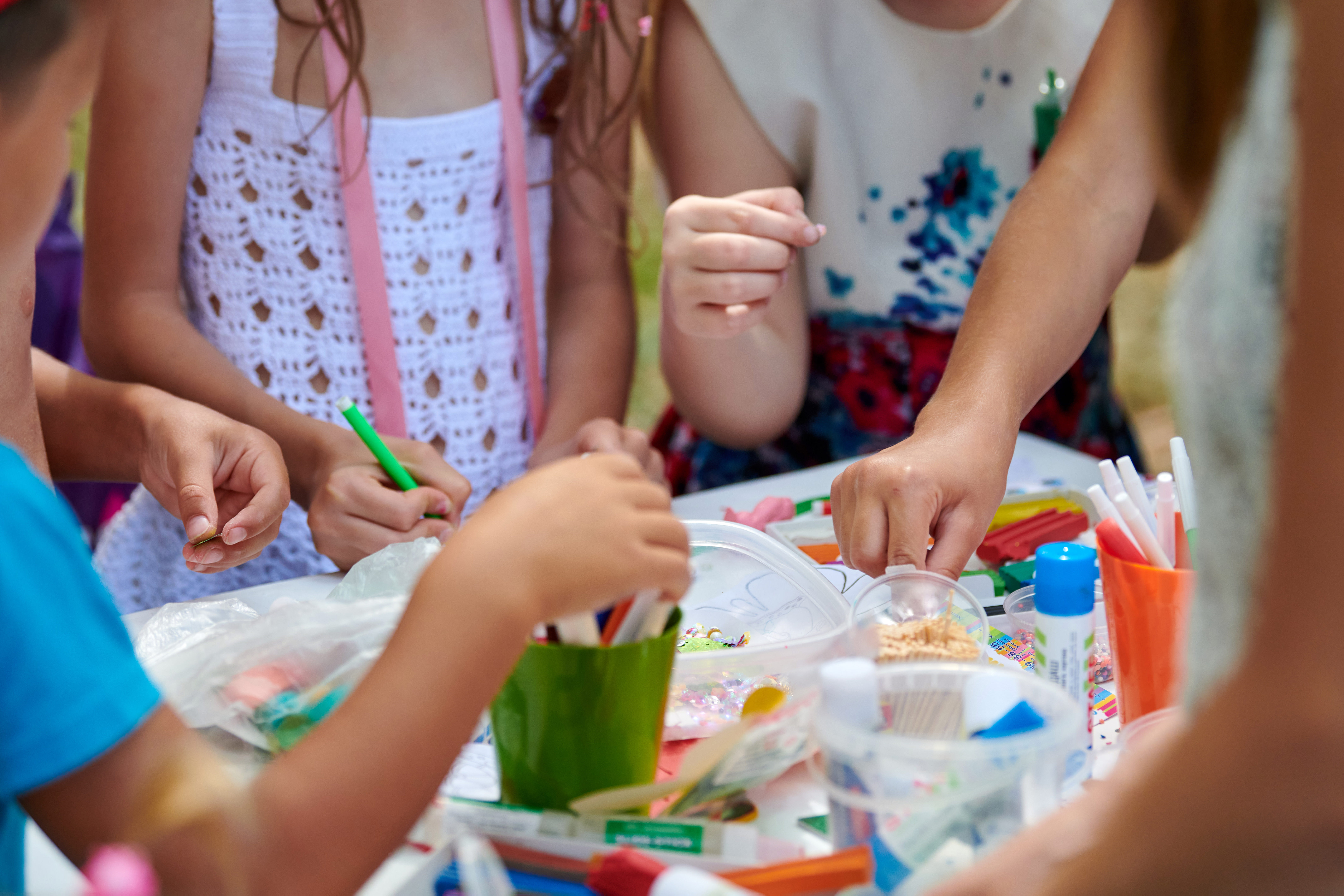Equitable Child Care for Indigenous Families
Achieving Equitable Child Care for Urban Indigenous Families in Collaboration with CMSMs and DSSABs
By: OFIFC
September 2024

Most recently, Statistics Canada published that 88% of Indigenous people in Ontario reside in an urban or rural settings. Yet, as the child care system sees rapid expansion, urban Indigenous families are still being deprived of Indigenous-led child care.
In Ontario alone, approximately 10,000 urban Indigenous child care spaces are required to meet the needs of urban Indigenous families. Currently, there is no clear plan to address the disparity. Through the Canada – Ontario Canada Wide Early Learning and Child Care (CWELCC) Agreement, an additional 86,000 spaces in Ontario have been promised. However, there is no commitment for additional spaces for urban Indigenous families.
The Ontario Federation of Indigenous Friendship Centres (OFIFC) represents 31 member Friendship Centres, who have identified that Indigenous-led early learning and child care (IELCC) is a top priority, central to fostering strong, vibrant and prosperous Indigenous children, families and communities.
In August 2023, the OFIFC shared the role of Friendship Centres in Indigenous Early Learning and Child Care, with a blueprint to create an Indigenous-led child care system that would be, accessible, high quality and culturally responsive. Also, highlighting the ongoing collaboration with OMSSA, this would include expanding the ELCC footprint of Friendship Centres.
The OFIFC continues to make progress on the IELCC vision of Friendship Centres including through securing project funding through Employment and Social Development Canada to support this work.
A main objective of this project is for the OFIFC to define and implement the Friendship Centre IELCC Model. This ensures there is a plan in place so that urban Indigenous families are on track to receiving affordable, culture-based and relevant childcare that is truly Indigenous-led and defined.
FRIENDSHIP CENTRE IELCC GOVERNANCE MODEL
Since their inception, Friendship Centres have supported urban Indigenous children and families through culturally grounded programs and services. Today, Friendship Centres, with their extensive expertise in the field, actively work to provide dynamic, high quality urban Indigenous ELCC to families.
For the Friendship Centres, Indigenous-led translates to an OFIFC administered model for delivery of child care and early learning programs and services through Friendship Centres.
The three-year project, launched in January 2024, will define high quality, Indigenous-led ELCC in the lens of Friendship Centres through community driven research and methods. Creating strong Indigenous-led monitoring, evaluation, quality assurance, and data collection, the project will set the foundation for a child care system grounded in reciprocity, respect and a regard for Indigenous-specific solutions that integrate Indigenous knowledge and systems.
The Friendship Centre IELCC Governance Model will create a culturally based licensing framework, that aligns to ELCC licensing and regulatory requirements in Ontario. This ensures Friendship Centres can deliver high quality, Indigenous-led ELCC services and programs to Indigenous families seeking an integrative, supportive child care system.
Concurrently, the IELCC Governance Model will promote specific urban Indigenous training as well as learning opportunities and strategies that will build the ability of Friendship Centres to deliver culture-based programming, as they evaluate, review, and update ELCC policies and processes.
This includes dedicated workforce initiatives, strategies and partnerships to increase the number of qualified Indigenous Early Childhood Educators. Ensuring Indigenous ECE’s are connected to dedicated supports and professional learning opportunities is paramount. These resources uphold and promote the delivery of high quality, Indigenous-led child care.
Most importantly, the Friendship Centre IELCC Governance Model aims to facilitate the transfer of Friendship Centre delivered child care authority from CMSMs and DSSABs to the OFIFC. This is critical to ensuring affordable, culture-based and relevant child care that is truly Indigenous-led and defined.
COLLABORATION WITH SERVICE SYSTEM MANAGERS
In Ontario, CMSMs and DSSABs are tasked with the role of child care administration. A change to this approach requires system transformation and partnerships from all levels of government. The OFIFC continues to seek out the conditions to create an urban Indigenous ELCC infrastructure, in which the Friendship Centre IELCC Governance Model can be realized.
CMSMs and DSSABs tasked with administering child care are telling the ministry that Indigenous communities must control their own child care services. The Ontario Municipal Social Services Association’s (OMSSA) 2023 Provincial Pre-budget Submission, is an example that illustrates this directive.
The OFIFC has an ongoing relationship with OMSSA, formalized through the OFIFC-OMSSA Memorandum of Understanding (MOU). Our joint priorities include shifting the responsibility for administration of Friendship Centre delivered IELCC to the OFIFC.
Since 2022, the OFIFC and OMSSA have sought to create knowledge sharing and joint advocacy pathways and opportunities on the administration, and operations of delivering ELCC in Ontario. This is in addition to securing pathways to share the IELCC vision of Ontario Friendship Centres throughout OMSSA's network and members.
The OFIFC uses the ongoing learnings and partnerships to expand the understanding of ELCC administration and the current gaps experienced by urban Indigenous families. Both are important in supporting the creation of the Friendship Centre IELCC Governance Model to best serve and meet the needs of Friendship Centres.
This work is critical to transforming and advancing Ontario’s child care system towards an Indigenous-led model that can support high-quality urban Indigenous early learning and child care programs and services. The OFIFC continues to assert that supporting the right of urban Indigenous communities to self-determination is an action-oriented reconciliation commitment that Service System Managers can advance in collaboration with the OFIFC.
The OFIFC continues to collaborate and partner with OMSSA and its members. This is an opportunity to build lasting reconciliation, that affirms the role of Friendship Centre communities to remember, reclaim, revitalize, and transmit Indigenous early learning and child care knowledge and systems.
About the Author

The Ontario Federation of Indigenous Friendship Centres (OFIFC) represents the collective interests of 31 Friendship Centres in cities and towns across the province. Friendship Centres are places for community members and Indigenous people living in urban spaces to gather, connect with one another and receive culturally based services. Friendship Centres improve the lives of urban Indigenous people by supporting self-determined activities which encourage equal access to, and participation in, Canadian society while respecting Indigenous cultural distinctiveness.
Blog categories: Indigenous, Early Learning, Child Care, CWELCC, OFIFC